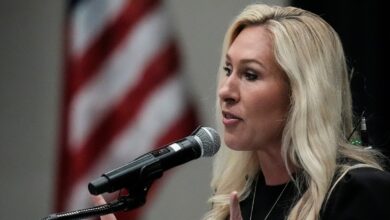The US brain drain has begun – POLITICO

And this isn’t an isolated incident. Of the 690 postgraduate researchers who responded to a poll in the publication Nature, 548 said they were considering leaving the U.S. One even responded: “This is my home, I really love my country, but a lot of my mentors have been telling me to get out, right now.”
Moreover, as McFall-Ngai pointed out, there are countless stories of international students frightened to leave the U.S.: “I have grad students and postdocs who are Slovenian, Belgian, Portuguese, French, Austrian, Mexican, Chinese and Irish.” Several, she said, wanted to go on vacation to see their families, “but they were told they would not be able to re-enter the U.S. if they left.”
So far, firings have taken place at institutions including the National Oceanic and Atmospheric Administration, the National Science Foundation, the U.S. Geological Survey and the Centers for Disease Control and Prevention. The National Institutes of Health — the world’s largest funder of biomedical research — was forced to jettison 1,200 employees and put grant reviews on hold, essentially turning off funding for labs. And as the cuts are coming, some federal agencies have been required to remove terms deemed unacceptably “woke,” such as diversity, gender and climate science from their websites.
But for Europeans and Canadians, still reeling from the open contempt the Trump administration holds them in, revenge is a dish best served cold.

Thirteen EU member countries, including France and Germany, have already written to Commissioner for Startups, Research and Innovation Ekaterina Zakharieva, urging increased funding and infrastructure to attract migrating scientists. And French Minister of Higher Education and Research Philippe Baptiste called for a “swift and robust response” to the “collective madness” of these decisions.
Several universities across Europe have gone on a recruitment drive, finding new pockets of funding to bring in specific individuals. France’s Aix Marseille University earmarked €15 million for 15 three-year positions as part of its new Safe Place for Science program, and the university says it’s receiving a dozen applications a day from “scientific asylum seekers.”




